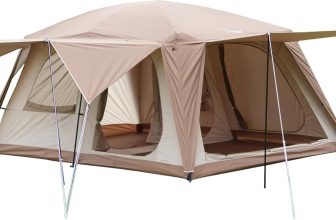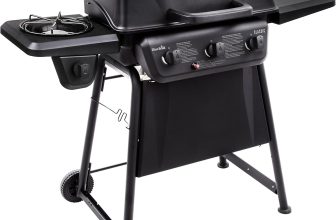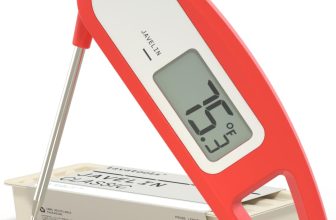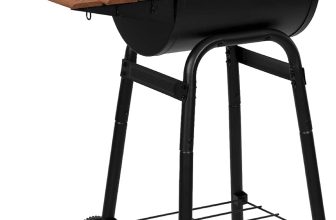
Best Aquasure 32,000 Grains Whole House Water Review water softener – Didiar
Aquasure 32,000 Grains Whole House Water Softener: A Deep Dive Review
Hard water. Just the phrase conjures up images of stubborn soap scum, dry skin, and appliances struggling under the weight of mineral buildup. If you’re battling these issues, a whole house water softener might be the solution you’ve been searching for. Among the many options available, the Aquasure 32,000 Grains Water Softener stands out as a popular and often-recommended choice. But is it really the right fit for your home? Let’s delve into a comprehensive review, exploring its features, performance, applications, and comparing it with similar products to help you make an informed decision.
Understanding Hard Water and the Need for Softening
Before diving into the specifics of the Aquasure softener, it’s essential to understand the problem it’s designed to solve. Hard water is water that contains high concentrations of minerals, primarily calcium and magnesium. These minerals aren’t harmful to drink, but they wreak havoc on your plumbing, appliances, and even your skin and hair. The telltale signs of hard water include:
- Soap Scum: That chalky white residue that clings to shower walls, sinks, and faucets is a classic sign of hard water reacting with soap.
- Dry Skin and Hair: Hard water prevents soap from lathering properly, leaving a film on your skin and hair that can cause dryness, irritation, and even exacerbate conditions like eczema.
- Scale Buildup: Over time, minerals in hard water accumulate inside pipes, water heaters, dishwashers, and other appliances, reducing their efficiency and lifespan. This scale buildup can also clog showerheads and faucets.
- Stiff Laundry: Hard water makes it difficult to get clothes clean and can leave them feeling stiff and scratchy, even after washing.
- Increased Soap and Detergent Use: You often need to use more soap and detergent to get things clean when you have hard water, which can be costly.
A water softener like the Aquasure 32,000 Grains model addresses these problems by removing the calcium and magnesium ions from the water through a process called ion exchange. This process replaces the hard water minerals with sodium or potassium ions, resulting in “soft” water that eliminates the negative effects of hardness.
Aquasure 32,000 Grains Water Softener: Features and Design
The Aquasure 32,000 Grains Water Softener is designed for households with 1-3 bathrooms and is capable of softening water with a hardness level of up to 75 grains per gallon (GPG). Its key features include:
- 32,000 Grain Capacity: This capacity refers to the amount of hardness the softener can remove before needing to regenerate. A higher grain capacity means less frequent regeneration cycles, which saves water and salt.
- Digital Metered Regeneration: The unit features a digital control valve that monitors water usage and regenerates the system only when necessary. This metered regeneration is more efficient than timer-based systems, which regenerate on a fixed schedule regardless of water consumption.
- Automatic Backwash: The automatic backwash feature cleans the resin bed, removing accumulated sediment and ensuring optimal performance.
- Durable Construction: The Aquasure softener is built with high-quality materials designed to withstand the rigors of continuous use.
- Easy Installation: While professional installation is recommended, the unit comes with detailed instructions and all the necessary hardware for DIY installation.
The design of the Aquasure softener is fairly standard for a whole house system. It consists of two main components: a mineral tank filled with resin beads and a brine tank that holds the salt solution used for regeneration. The control valve is located on top of the mineral tank and houses the digital display and controls.
The digital display provides information on the current settings, regeneration cycle, and salt level. It also allows you to customize the regeneration schedule and adjust other parameters. The compact design of the Aquasure softener makes it relatively easy to install in a basement, garage, or utility room.
A Closer Look at the Control Valve
The control valve is the brain of the water softener, and the one used in the Aquasure system is a key component of its efficiency. Its metered regeneration capabilities are a significant advantage. Instead of regenerating on a set schedule (like every few days), it monitors your water usage. Only when it calculates that the resin beads are nearing exhaustion does it initiate the regeneration process. This conserves both water and salt, saving you money in the long run. The valve also allows you to adjust the salt dosage, which is useful if your water hardness fluctuates or you want to fine-tune the system for optimal performance.
Performance and Efficiency
The performance of the Aquasure 32,000 Grains Water Softener is generally very good, provided it’s properly sized for your household and water hardness. Users report a noticeable improvement in water quality, including softer skin and hair, less soap scum, and brighter laundry. Appliances also benefit from the reduced mineral buildup, leading to improved efficiency and longer lifespan.
The metered regeneration feature contributes significantly to the softener’s efficiency. By only regenerating when necessary, it minimizes water and salt consumption. The actual amount of water and salt used during regeneration will vary depending on your water hardness and usage patterns, but the Aquasure softener is designed to be more efficient than traditional timer-based systems.
To illustrate the difference in efficiency, consider a family of four with moderately hard water. A timer-based softener might regenerate every three days, regardless of whether the resin bed is fully exhausted. This can result in unnecessary water and salt usage. The Aquasure softener, on the other hand, might only regenerate every five or six days, based on actual water consumption, saving a considerable amount of water and salt over time.
Real-World Performance Metrics
While individual results may vary, here’s a general idea of the performance metrics you can expect from the Aquasure 32,000 Grains Water Softener:
- Salt Consumption: Typically between 6-12 lbs per regeneration cycle, depending on the salt dosage setting and water hardness.
- Water Usage per Regeneration: Approximately 40-60 gallons.
- Flow Rate: Adequate for most households with 1-3 bathrooms, providing sufficient water pressure for simultaneous use of multiple fixtures.
Keep in mind that these are just estimates. To get a more accurate assessment of the softener’s performance in your specific situation, it’s recommended to monitor your water and salt consumption after installation.
Practical Applications in Different Scenarios
The Aquasure 32,000 Grains Water Softener is suitable for a variety of applications, ranging from residential homes to small businesses. Let’s explore some specific scenarios:
Home Use
This is the most common application for the Aquasure softener. In a home setting, it provides soft water for all fixtures and appliances, improving the overall quality of life. Benefits include:
- Improved Skin and Hair Health: Soft water helps prevent dryness and irritation, leaving skin feeling smoother and hair more manageable.
- Cleaner Appliances: Reduced scale buildup extends the lifespan and improves the efficiency of water heaters, dishwashers, and washing machines.
- Brighter Laundry: Soft water allows detergents to work more effectively, resulting in cleaner and brighter clothes.
- Less Soap Scum: Easier cleaning and maintenance due to the absence of hard water deposits.
Office Use
Small businesses and offices can also benefit from the Aquasure softener, particularly if they use appliances that rely on water, such as coffee machines, ice makers, and dishwashers. Soft water can prevent scale buildup, reducing maintenance costs and extending the lifespan of these appliances.
Imagine a small office with a coffee machine that’s constantly plagued by mineral buildup. The Aquasure softener can eliminate this problem, ensuring that employees always have access to clean, great-tasting coffee. Similarly, in a restaurant or café, soft water can improve the quality of ice and reduce the need for frequent cleaning of dishwashers.
Educational Institutions
Schools and universities that utilize water-based equipment in science labs or cafeterias could leverage the Aquasure system. Softened water reduces maintenance on specialized equipment and improves the efficiency of cleaning processes.
Senior Care Facilities
For senior care facilities, the benefits of softened water extend beyond appliance protection. Softer water is gentler on sensitive skin, which is crucial for elderly residents. Reducing dry skin and irritation can significantly improve their comfort and overall well-being.
Pros and Cons
Like any product, the Aquasure 32,000 Grains Water Softener has its pros and cons. Weighing these factors carefully will help you determine if it’s the right choice for your needs.
Pros
- Effective Water Softening: Reliably removes hardness minerals, delivering noticeable improvements in water quality.
- Metered Regeneration: Saves water and salt compared to timer-based systems.
- Durable Construction: Built to last with high-quality materials.
- Relatively Easy Installation: DIY-friendly, with clear instructions and included hardware.
- Digital Control Valve: Allows for easy monitoring and adjustment of settings.
- Competitive Price: Offers good value for the features and performance it provides.
Cons
- Requires Salt: Like all salt-based water softeners, it requires regular salt refills.
- Adds Sodium to Water: While the amount of sodium added is typically small, it may be a concern for individuals on sodium-restricted diets. Consider a potassium chloride alternative.
- Can Be Bulky: The two-tank design can take up a significant amount of space.
- Professional Installation Recommended: While DIY installation is possible, it may be challenging for some users.
Comparison with Similar Products
To provide a more comprehensive review, let’s compare the Aquasure 32,000 Grains Water Softener with some similar products on the market.
| Feature | Aquasure 32,000 Grains | Fleck 5600SXT 48,000 Grains | WaterBoss 700 |
|---|---|---|---|
| Grain Capacity | 32,000 | 48,000 | 70,000 |
| Regeneration Type | Metered | Metered | Metered |
| Number of Bathrooms | 1-3 | 3-5 | 4+ |
| Salt Storage Capacity | 200 lbs | 250 lbs | N/A (Compact Design) |
| Price Range | $$ | $$$ | $$$ |
| Ease of Installation | Moderate | Moderate | Moderate |
Fleck 5600SXT: The Fleck 5600SXT is a highly regarded water softener known for its reliability and durable construction. It features a similar metered regeneration system and is suitable for larger households. However, it typically comes at a higher price point than the Aquasure model.
WaterBoss 700: The WaterBoss 700 is a compact, all-in-one water softener that’s designed for smaller spaces. It also features metered regeneration and is known for its efficiency. However, its compact design may limit its capacity and flow rate compared to the Aquasure model.
Choosing the right water softener depends on your specific needs and budget. If you have a small to medium-sized household and are looking for a balance of performance, efficiency, and affordability, the Aquasure 32,000 Grains Water Softener is an excellent option. If you have a larger household or require a higher grain capacity, the Fleck 5600SXT might be a better choice. And if space is a major constraint, the WaterBoss 700 could be a suitable alternative.
Installation Tips and Considerations
While the Aquasure 32,000 Grains Water Softener is designed for relatively easy installation, it’s important to follow the instructions carefully and take certain precautions. Here are some tips to ensure a smooth installation process:
- Read the Manual: Before you start, thoroughly read the installation manual. This will familiarize you with the components, steps, and safety precautions.
- Gather Your Tools: Make sure you have all the necessary tools, including pipe cutters, wrenches, Teflon tape, and a level.
- Turn Off the Water Supply: Before disconnecting any plumbing, turn off the main water supply to your house.
- Bypass Valve: Install a bypass valve so that you can isolate the water softener for maintenance or repairs without shutting off the water to your entire house.
- Drainage: Ensure proper drainage for the regeneration cycle. The drain line should be connected to a suitable drain, such as a floor drain or utility sink.
- Professional Help: If you’re not comfortable with plumbing work, it’s best to hire a professional plumber to install the softener.
Maintenance and Longevity
Proper maintenance is essential to ensure the longevity and optimal performance of your Aquasure water softener. Here are some key maintenance tasks:
- Regular Salt Refills: Check the salt level in the brine tank regularly and refill as needed. Use high-quality water softener salt to prevent impurities from clogging the system.
- Annual Cleaning: Once a year, clean the brine tank to remove any accumulated sediment or salt buildup.
- Resin Bed Cleaning: Consider using a resin bed cleaner periodically to remove iron and other contaminants that can reduce the softener’s efficiency.
- Monitor Water Hardness: Periodically test your water hardness to ensure the softener is working properly.
- Check for Leaks: Regularly inspect the system for leaks and address any issues promptly.
With proper maintenance, the Aquasure 32,000 Grains Water Softener can last for many years. The lifespan of the resin beads is typically around 5-10 years, depending on water quality and usage patterns. The control valve is also a durable component that can last for a long time with proper care.
Frequently Asked Questions (FAQ)
Here are some frequently asked questions about the Aquasure 32,000 Grains Water Softener:
- Q: How do I know if the Aquasure 32,000 Grains Water Softener is the right size for my home?
-
Determining the right size water softener involves considering a few factors: household size (number of people), water usage (gallons per day), and water hardness (grains per gallon). The Aquasure 32,000 Grains model is generally suitable for households with 1-3 bathrooms and moderate water usage. To calculate your specific needs, estimate your daily water consumption by multiplying the number of people in your household by 75 gallons (average water usage per person per day). Then, multiply that number by your water hardness level (you can get this information from your local water utility or by testing your water). Finally, divide that number by the softener’s grain capacity (32,000 in this case) to determine how many days you can go between regeneration cycles. Aim for a regeneration cycle every 2-3 days for optimal performance.
- Q: Does the Aquasure water softener remove iron from the water?
-
While the Aquasure 32,000 Grains Water Softener primarily focuses on removing calcium and magnesium (hardness minerals), it can also remove small amounts of iron. However, if you have high iron levels in your water (over 2-3 ppm), you may need a separate iron filter to protect the softener and prevent staining. Excessive iron can foul the resin bed, reducing its efficiency and lifespan. If you suspect high iron levels, have your water tested and consider installing an iron filter before the water softener.
- Q: How much salt does the Aquasure softener use?
-
The salt consumption of the Aquasure softener varies depending on your water hardness, water usage, and the salt dosage setting. The metered regeneration feature helps to minimize salt usage by only regenerating when necessary. Typically, you can expect to use between 6-12 pounds of salt per regeneration cycle. You can adjust the salt dosage setting on the control valve to fine-tune the salt consumption based on your specific needs. Experiment with different settings to find the optimal balance between water softening performance and salt efficiency. Monitoring your salt usage over time will help you determine the best setting for your situation.
- Q: How often does the Aquasure water softener need to regenerate?
-
The frequency of regeneration depends on the same factors that affect salt consumption: water hardness, water usage, and the softener’s capacity. Thanks to its metered regeneration, the Aquasure softener regenerates only when it needs to, based on your actual water consumption. This is different from timer-based systems, which regenerate on a fixed schedule, regardless of water usage. For a typical household with moderate water hardness and usage, the Aquasure softener might regenerate every 4-7 days. Monitoring your water softness and adjusting the salt dosage setting can help you optimize the regeneration frequency and ensure efficient operation.
- Q: Is it difficult to install the Aquasure water softener myself?
-
The difficulty of installing the Aquasure water softener yourself depends on your plumbing experience and comfort level. The unit comes with detailed instructions and all the necessary hardware for DIY installation. However, basic plumbing skills are required, including the ability to cut and connect pipes, and knowledge of plumbing codes. If you’re comfortable with these tasks, you should be able to install the softener yourself. If not, it’s best to hire a professional plumber to ensure proper installation and avoid any potential problems. Incorrect installation can lead to leaks, reduced performance, and even damage to the softener or your plumbing system.
- Q: What type of salt should I use in the Aquasure water softener?
-
It’s recommended to use high-quality water softener salt in the Aquasure softener. There are several types of salt available, including rock salt, solar salt, and evaporated salt. Evaporated salt is generally considered the purest and most effective option, as it contains the fewest impurities. Rock salt is the least expensive, but it may contain more impurities that can clog the system over time. Solar salt is a good middle ground, offering a balance of purity and affordability. Avoid using table salt, as it contains additives that can damage the softener. Regardless of the type of salt you choose, make sure it’s specifically designed for water softeners.
- Q: Does the Aquasure water softener come with a warranty?
-
Yes, the Aquasure 32,000 Grains Water Softener typically comes with a warranty. The specific terms and conditions of the warranty may vary, so it’s important to check the warranty documentation that comes with the unit. Generally, the warranty covers defects in materials and workmanship for a certain period, such as one year for the control valve and five years for the tanks. Be sure to register your product with the manufacturer to activate the warranty and keep your proof of purchase handy in case you need to make a claim. Read the warranty carefully to understand what is covered and what is not, as well as any limitations or exclusions.















